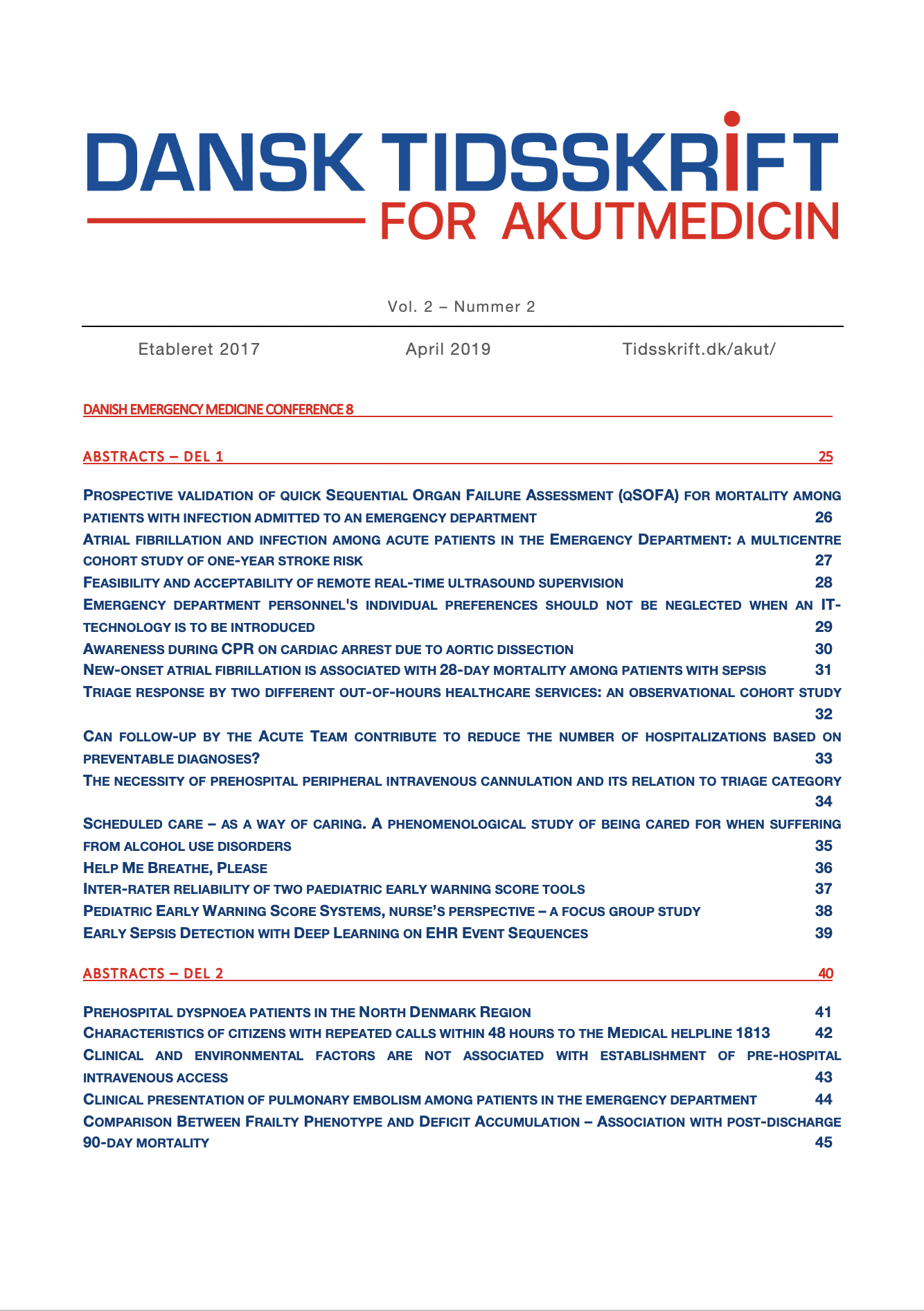Resumé
Background: Pulmonary embolism (PE) is an important clinical entity known to cause a wide range of symptoms. Morbidity and mortality of PE are high. However, knowledge of symptomatology is sparse.
Aim: To elucidate the clinical presentation of emergency department (ED) patients diagnosed with PE.
Methods: We carried out a cross-sectional study of adult patients attending the EDs at Odense University Hospital and Hospital of Southwest Jutland. The main symptom at presentation was
prospectively registered. ED and hospital discharge diagnosis was sampled from the Danish national health registry. Patients with PE were identified based on discharge diagnoses (ICD-10 code I26.0 or I26.9) from the ED or following hospitalization.
Results: Among 24,124 contacts to the EDs, 322 (1.3%) were diagnosed with PE. The main presenting symptom was respiratory distress (31%; n=101), while 26% (n=85) had symptoms suspicious of heart disease such as dyspnea of cardiac cause, chest pain and palpitation, 8% (n=27) fainting / syncope or suspected neurological disorders, 8% (n=26) pain in the lower limb, and 6% (n=18) had fever as their main symptom.
Conclusion: PE patients have a wide variety of symptoms and most PE patients present with other symptoms than dyspnea.
Licenseret under en Creative Commons Kreditering 4.0 International-licens (CC BY 4.0).
© Forfatterne.

